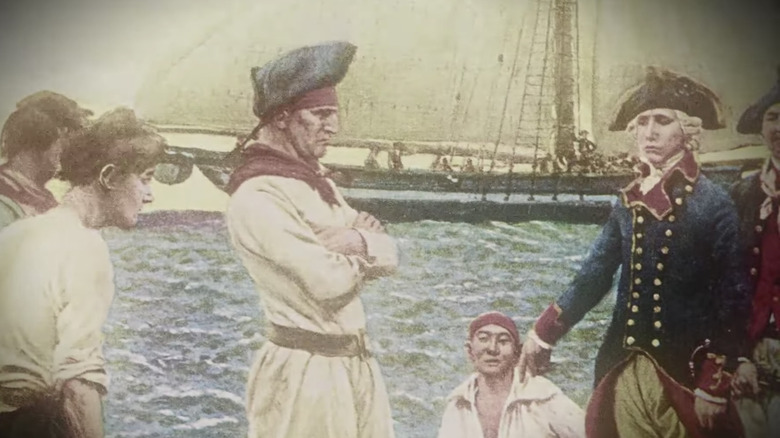The British Soldier Who May Have Solved Oak Island's Mystery
One of the most remarkable things about History's "The Curse of Oak Island," is the fact that, even after all this time, series leads Rick and Marty Lagina still manage to hold out hope that there is something hidden on the mysterious island.
For nine seasons, the Lagina brothers have scoured Oak Island for clues that might lead them to the fabled treasure rumored to have been buried on the island ever since the 1700s. Each season, without fail, the brothers manage to uncover some artifact or relic that they think is connected to the treasure — and though half of these "groundbreaking discoveries" turn out to be dead ends, the simple fact that they uncover something is often enough to keep the brothers' hopes alive. As admirable as it is that the Lagina brothers are able to keep their search going after all this time, there is one theory that asserts their entire treasure hunt is in vain.
Not because the treasure doesn't exist, but because the treasure was found centuries ago.
Captain James Anderson was a British privateer in the 1700s
This theory connects to the story of Captain James Anderson, an American sailor who defected to the British side during the American Revolution and became a privateer — which was essentially a government-sanctioned pirate. Anderson was allegedly one of the first landowners on Oak Island, and in Season 5 of "The Curse of Oak Island," it's revealed that there are actually historical documents that confirm James Anderson was also a member of the Freemasons (via Monsters and Critics).
So, a former pirate turned Freemason, who settled on Oak Island in the 1700s — did he hide some of his plunder on the island, perhaps in the legendary Money Pit? Alas, the unfortunate truth is that if the treasure was in fact Anderson's, it was most likely discovered and taken by Samuel Ball, a former slave who purchased a huge chunk of the island from Anderson in the late 1700s. There have been rumors for more than a century that Ball uncovered the treasure of Oak Island shortly after purchasing his land, which would explain the "sudden prosperity" Ball enjoyed throughout the 1800s (via History).
It's a disappointing theory all around — both for fans hoping that the treasure is something legendary like the lost gold of the Knights Templar (and not the pirated treasure of a traitor) and for those who are still holding out hope that said treasure is still buried somewhere out there.

